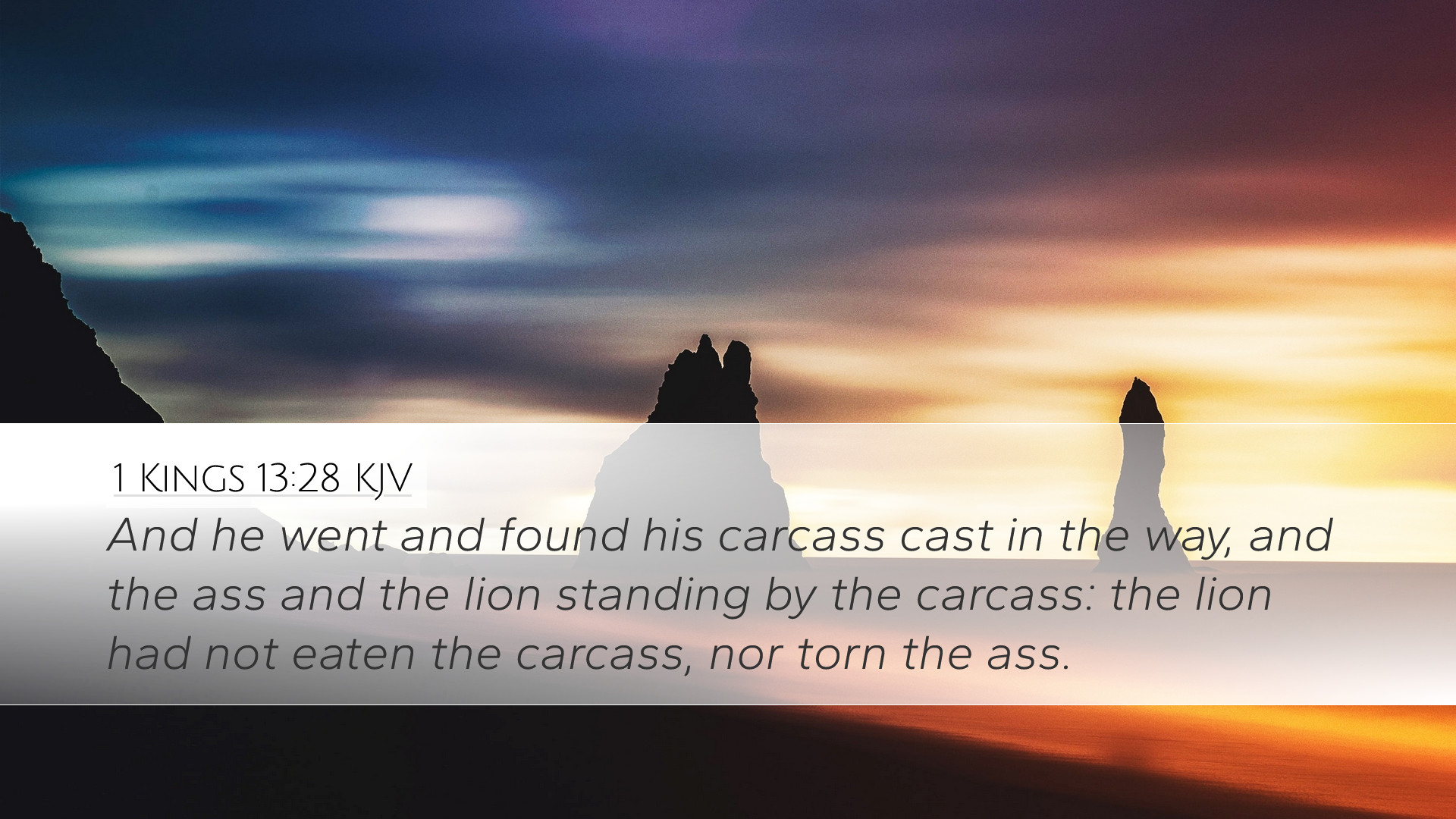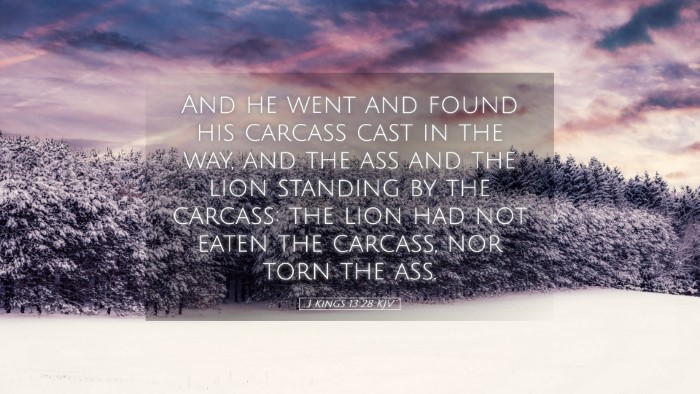Commentary on 1 Kings 13:28
Verse: "And he went and found his carcass cast in the way, and the lion standing by the carcass; and the lion had not eaten the carcass, nor torn the carcass."
Introduction
The verse in 1 Kings 13:28 presents a striking narrative involving a young prophet who disobeyed divine instruction and ultimately met a tragic end. This commentary synthesizes insights from notable public domain commentaries, shedding light on its theological significance.
Context of the Passage
To properly interpret 1 Kings 13:28, one must understand the broader narrative of the chapter. The young prophet was commissioned to deliver a message to King Jeroboam concerning his altar in Bethel. However, after receiving guidance from God, he was deceived by an older prophet, leading to disobedience and ultimately tragedy.
Analysis of the Characters
The Young Prophet:
- Divine Commission: The young prophet was initially faithful, responding to God’s call and delivering His message (1 Kings 13:1-2).
- Disobedience and Consequence: His failure to heed God's command later in the chapter highlights the dangers of straying from divine instruction, as underscored by Matthew Henry.
The Lion:
- Symbol of Divine Judgment: The lion acts as an instrument of God's judgment, representing the seriousness of sin and the inevitability of divine retribution.
- Preservation of the Carcass: The lion’s refusal to consume the carcass, as noted by Albert Barnes, serves as a significant miracle, emphasizing that God controlled both creation and the circumstances of this event to demonstrate a moral lesson.
Theological Insights
This event illustrates crucial principles regarding obedience to God:
- The Authority of God’s Command: The young prophet's downfall serves as a reminder of the importance of listening to and strictly adhering to God's commands. Adam Clarke stresses the idea that partial obedience is equivalent to disobedience.
- Warning Against Deception: The narrative underscores the risks of being misled by others, particularly false prophets, which remains a relevant warning for contemporary believers.
- Divine Justice: The passage reveals that God’s justice is both inevitable and impartial, asserting that disobedience leads to severe repercussions.
Moral and Ethical Considerations
This incident evokes a reflection on various moral and ethical aspects:
- The Cost of Disobedience: For modern believers, this story serves as a caution against the casualness of disregarding God’s word.
- Integrity in Ministry: It compels pastors and church leaders to instill the importance of integrity and accountability in their ministries.
Conclusion
1 Kings 13:28 is a potent reminder of the significance of fidelity to God's call and the consequences of failing to maintain that allegiance. It underscores the ongoing relevance of this ancient text in guiding contemporary belief and practice. Through the lens of these commentaries, pastors, students, and theologians are encouraged to approach the Lord with a heart inclined towards obedience.


